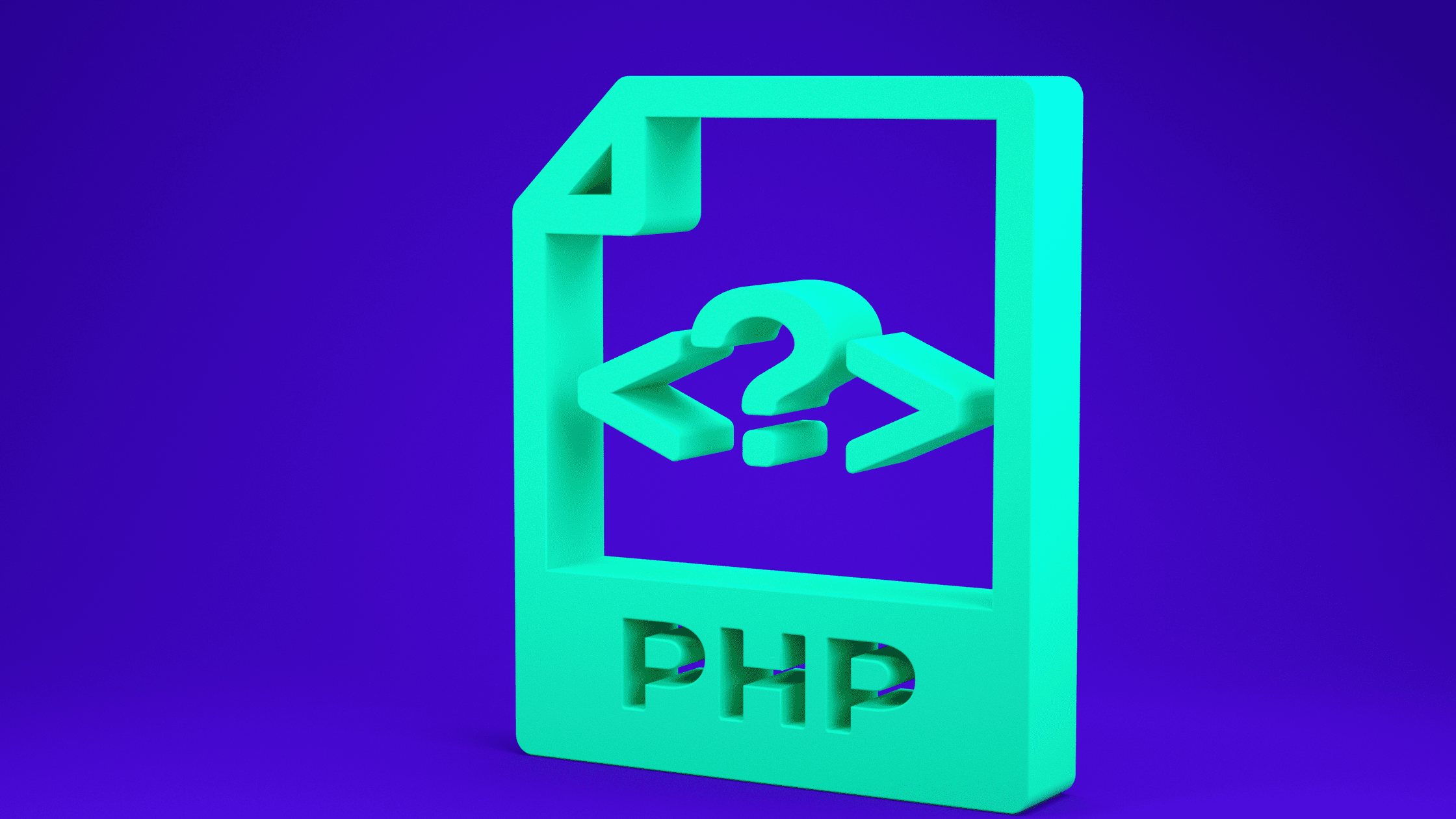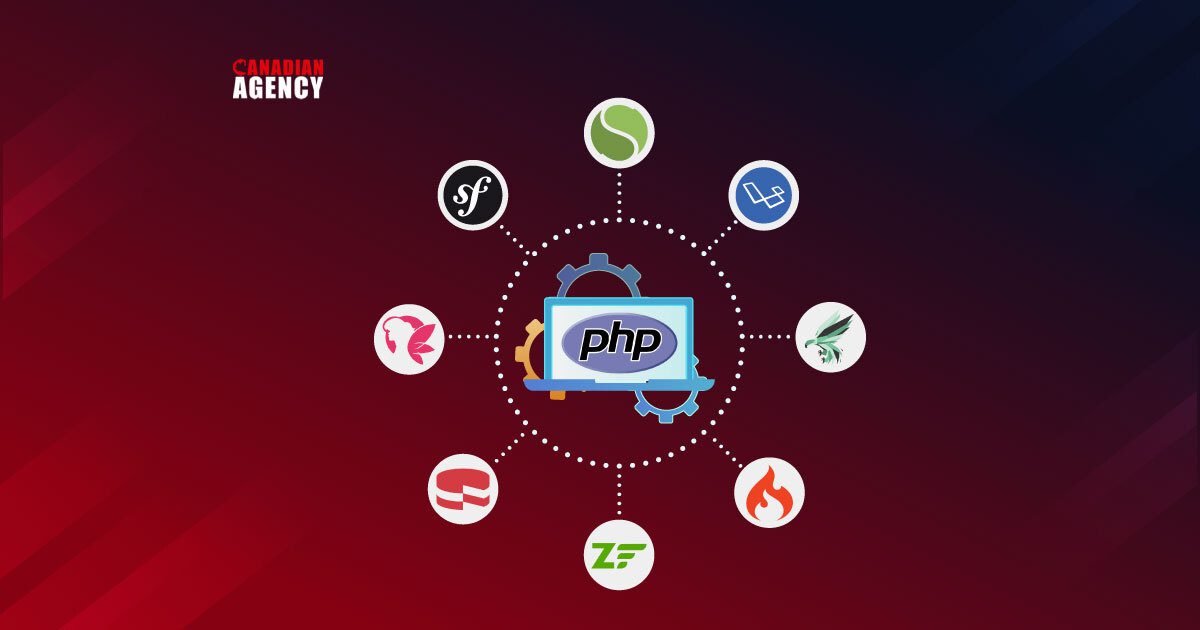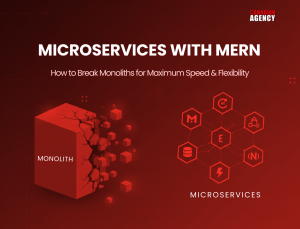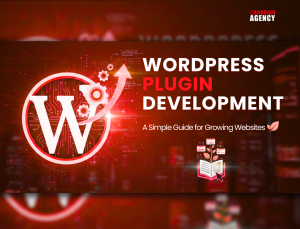PHP is one of the most widely used server-side scripting languages for crafting constantly evolving websites or web applications. With no indication of diminishing popularity, PHP is currently powering more than 75% of websites on the internet. To name a few top-notch websites utilizing PHP: WordPress, Facebook, and Wikipedia are all being run by this extremely powerful programming language.
To make the lives of PHP developers easier, there are a number of frameworks that are easily accessible and simplify coding in this language. But the lingering questions remain: Why do you need a top-notch PHP framework in the first place? How to select a framework? What are some of the best PHP frameworks?
What is a PHP framework?
PHP Framework is a platform designed to simplify the process of developing web applications using the PHP language. It provides libraries with pre-packaged functions and classes, reducing the need for developers to write code from scratch.
One of the main advantages of using a PHP framework is its ability to simplify the maintenance of websites or web apps. It enables developers to write code that is both readable and maintainable. Another significant advantage is the open-source nature of PHP. It means that users don’t have to pay any money to use the frameworks, run applications, or even modify the code to suit their unique requirements.
As for the use cases, PHP Frameworks are typically leveraged for developing web applications of varying complexity and size. From simple web pages to enterprise-level applications, the top-notch frameworks offer a foundation encompassing common functions like authentication, routing, database access, and more.
While there are a handful of top PHP frameworks for web app development readily accessible, the eventual choice often depends on the specific project requirements and the developer’s expertise.

10 best PHP frameworks for Web Development:
Here, I have compiled a list of the most popular frameworks to help PHP developers:
| Frameworks | Key Attributes |
| Laravel |
|
| Symfony |
|
| Phalcon |
|
| CodeIgniter |
|
| CakePHP |
|
| Yii |
|
| Zend |
|
| FuelPHP |
|
| PHPPixie |
|
| Slim |
|
1) Laravel
Laravel is a PHP framework known for its elegance and simplicity. It provides a robust set of tools and an intuitive interface for developers. Laravel’s strengths include a rich set of functionalities like MVC support, object-relational mapping, and security. This framework, however, is often criticized for its performance issues when dealing with large applications.
Pros of Laravel:
- Expressive, clean coding style
- Comprehensive documentation
- Built-in authentication and database integration
- Active open-source community
- Supports third-party packages
Cons of Laravel:
- Performance limitations at higher traffic loads
- A steep initial learning curve
- Breaking changes between versions
- Missing support for older PHP versions
- Larger app dependency footprint
2) Symfony
Symfony is a flexible PHP framework that supports MVC architecture. It provides reusable PHP libraries and is renowned for its speed and adaptability. Symfony offers rich features like backward compatibility and extensive security mechanisms.
However, this framework has a steep learning curve and may require more time for development compared to other frameworks, making it a difficult choice for beginners.
Pros of Symfony:
- Built for enterprise, highly customized apps
- Extensive security protection mechanisms
- Numerous bundled and third-party integration options
- Backward compatibility across versions
- High-performance architecture
Cons of Symfony:
- Fairly steep initial learning curve
- Challenging templating and theming syntax
- Difficult code organization/structure for beginners
- Overly complex features beyond core needs
- Upgrade complexity when leveraging full-stack
3) Phalcon
As compared to other frameworks, Phalcon stands out for its speed and low resource usage, as it’s implemented as a C extension. It is a full-stack framework whose features include robust security, MVC & HMVC support, and a universal auto-loader.
On the downside, its documentation and community support are less comprehensive than other frameworks. Its module-based structure is also laborious for beginners to comprehend.
Pros of Phalcon:
- Extreme high throughput, speed, and scalability
- Loose coupling architecture enables flexibility
- Reduced resource usage benefits hosting costs
- Supports the latest PHP versions and features
- It’s a C-based extension
Cons of Phalcon:
- PHP extension installation complexity
- Limited documentation and learning resources
- Module-based structure harder for new developers
- Much fewer third-party libraries and plugins
- Database abstraction and ORM capabilities weaker

4) CodeIgniter
CodeIgniter is a PHP framework known for its small footprint and performance. It is easy to set up and offers a rich set of libraries for common tasks. Regarded as a lightweight framework, CodeIgniter is renowned for its lightning-fast execution speed. Its logical MVC structure also makes it an amiable choice among PHP developers.
However, compared to other PHP frameworks, CodeIgniter’s libraries are less extensive, and they receive fewer updates.
Pros of CodeIgniter:
- Lightweight, speed-focused execution
- Minimalist, easy project setup
- Clear and logical MVC code organization
- Excellent community support
- Highly customizable platform
Cons of CodeIgniter:
- Reliance on regular updates and patches
- Limited built-in security protections
- Less features than other full-stack options
- Weaker object-relational mapping abilities
- Smaller collection of third-party libraries
5) CakePHP
CakePHP is a PHP framework that emphasizes convention over configuration. It supports MVC architecture and provides built-in tools for input validation and form tampering protection. CakePHP is particularly useful for handling complicated web application development.
Talking about its disadvantages, the main drawback of CakePHP is its notoriety for slower execution speed compared to other PHP frameworks.
Pros of CakePHP:
- Excels at complex, data-driven web application development
- Sophisticated caching and built-in security capabilities
- High extensibility based on component structure
- Excellent documentation quality with rich API references
- Utilizes code scaffolding and generation
Cons of CakePHP:
- Not ideal for smaller-scale website projects
- Overcomplicated, steep learning curve for beginners
- Reliance on the command line interface during development
- Challenging debugging and diagnostic processes at times
- Upgrades require adjusting namespaces
6) Yii
Yii is renowned as a fast, secure, and efficient PHP framework. It supports data caching, lazy loading, as well as MVC design patterns. Yii is known for accelerating the web development process by enabling maximum reusability. This rapid speed is what makes this framework such a useful option among PHP developers.
Literally translated from Chinese as “simple and evolutionary”, Yii is a generic framework for web development, making it particularly useful for developing all types of web applications.
Pros of Yii:
- Excels at complex, data-driven web application development
- Sophisticated caching and built-in security capabilities
- High extensibility based on component structure
- Excellent documentation quality with rich API references
Cons of Yii:
- It is not ideal for smaller-scale website projects
- Overcomplicated, steep learning curve for beginners
- Reliance on the command line interface during development
7) Zend
Zend is a powerful and flexible PHP framework, making it ideal for complex high-level web applications. It is object-oriented and supports multiple database systems. By providing a collection of reusable PHP components and libraries, Zend simplifies common tasks like database interaction, routing, authentication, and caching. Zend Framework is particularly well-suited for enterprise-level applications due to its emphasis on security, performance, and extensibility.
Pros of Zend:
- Enables creation of scalable, service-based architectures
- Lightweight with customized compositions possible
- Decoupled components aid sophisticated apps
- Good documentation for modular functions
Cons of Zend:
- Fairly steep learning curve involved
- Integrating components has complexity
- Limited default user interface elements
8) FuelPHP
FuelPHP is a high-performance PHP framework that promotes rapid application development and maintainability. It boasts a lightweight and flexible architecture, enabling developers to build web applications with minimal coding effort.
When it comes to its use cases, FuelPHP’s modular design and extensive community support make it a popular choice for creating a wide range of web applications, from simple websites to complex enterprise-level solutions.
Pros of FuelPHP:
- Straightforward routing, clean controllers
- Powerful templating and validation engine
- Quality documentation structure
- Easy debugging with logging tools
Cons of FuelPHP:
- Limited third-party libraries and extensions growth
- Database ORM features are weaker than rivals
- Deployment requires deeper experience
9) PHPPixie
PHPPixie is a lightweight and intuitive PHP framework that prioritizes simplicity, flexibility, and performance. It follows the famed Hierarchical Model-View-Controller (HMVC) pattern, ensuring code organization and maintainability.
PHPPixie is well-suited for building both small-scale websites and large-scale web applications, particularly those that require high performance and scalability. Its active community also offers extensive support and contributions.
Pros of PHPPixie:
- Speeds prototyping web application ideas
- Very lightweight setup and scaffolding
- Integrated components facilitate building
- Clear documentation structure provided
Cons of PHPPixie:
- Overly strict workflows hamper flexibility
- Scalability constraints emerging with complexity
10) Slim
Slim is a PHP micro-framework that is easy to use, provides a simple, intuitive interface, and is extensively documented. Slim is acknowledged as one of the lightest PHP frameworks, making it ideal for small-scale web applications.
However, its simplicity can be a limitation for complex applications, and it may require additional components for extended functionalities.
Pros of Slim:
- Extremely lightweight, high-performance operations
- Rapid development and prototyping abilities
- Excellent for well-defined API backend creation
- Strong focus on modern PHP standards
- Thorough documentation provided
Cons of Slim:
- Debugging and visibility are harder without logging
- Adding advanced features requires external libs
- Not suitable for complex applications
How to select a PHP framework?
Identifying the most suitable PHP framework goes a long way in the success of your web development project. It is pertinent to mention that the best PHP framework for you depends on your specific needs and the nature of your project. Here are some of the factors that you must consider before making the final decision:
1) Outline your Requirements:
Every project has its own functions and requirements. Not every PHP framework is suitable for complicated web projects. Therefore, it’s essential to select a PHP framework that can fulfill these requirements.
2) Level of Documentation:
A somewhat underestimated part of the selection process, documentation of a framework helps the developers in case he/she runs into an error. A well-documented framework simplifies the development process and helps developers understand the framework better and use it effectively. Therefore, you must analyze the level of documentation provided by the framework before making a choice of framework.
3) Regular Updates & Community Support:
With the ever-evolving trends of digital technology, regular updates ensure that the framework stays up-to-date with the latest technologies and security patches. Similarly, strong community support indicates that the framework is widely used, and it’s easier to find solutions to common problems. Both regular updates and community support of a PHP framework should be considered before identifying the most appropriate framework for your project.
The Verdict
To summarize, top PHP frameworks significantly simplify the web development project, enhancing efficiency and project quality. From Laravel to Yii and Zend to Slim, there are various options to choose from if you are a PHP developer. Before making the final call, you must consider factors like community support and the scope of your project to enhance the web development methodology.




